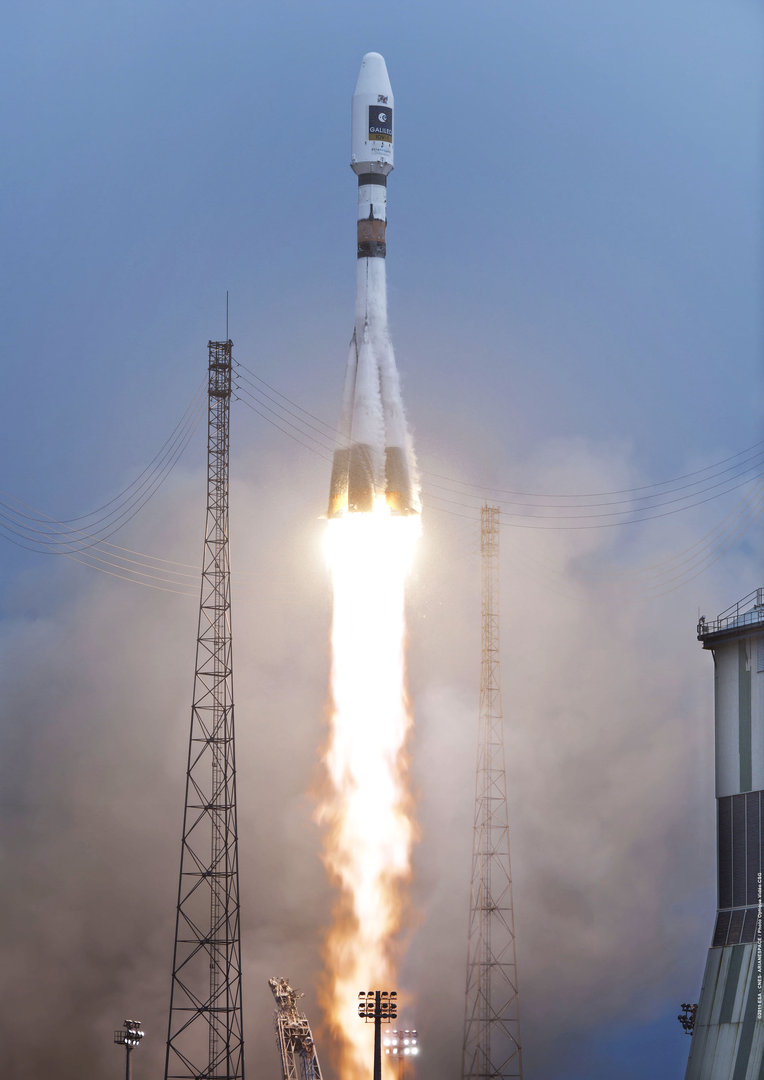
Soyuz STA
ActiveProgress Rocket Space Center (PRSC)
Dec. 17, 2011
Description
The 2.1a version includes conversion from analog to digital flight control system and uprated engines on the booster and the first stage with improved injection systems. The new digital flight control and telemetry systems allow the rocket to launch from a fixed rather than angled launch platform and adjust its heading in flight. A digital control system also enables the launch of larger commercial satellites with wider and longer payload fairings such as the ST-type fairing. These fairings introduce too much aerodynamic instability for the old analog system to handle. This stage continues to use the RD-0110 engine. The 2.1a/ST version is sometimes called Soyuz ST-A.
Specifications
-
Stages
3 -
Length
46.3 m -
Diameter
2.95 m -
Fairing Diameter
― -
Launch Mass
312.0 T -
Thrust
―
Family
-
Name
Soyuz STA -
Family
― -
Variant
Fregat -
Alias
― -
Full Name
Soyuz STA Fregat
Payload Capacity
-
Launch Cost
― -
Low Earth Orbit
7020.0 kg -
Geostationary Transfer
Orbit
2810.0 kg -
Direct Geostationary
― -
Sun-Synchronous Capacity
4230.0 kg
Progress Rocket Space Center
Commercial
CEO: Dmitry Baranov
PRSC 1996Progress Rocket Space Centre, formerly known as TsSKB-Progress, is a space science and aerospace research company which is known for manufacturing launch vehicles and satellites. Most notably, Progress Rocket Space Centre is the manufacturer of Soyuz launch vehicles.
Flight Record
No spaceflights found for .
Electron
The Nation God Navigates (iQPS Launch 5)
Rocket Lab Launch Complex 1B - Rocket Lab Launch Complex 1, Mahia Peninsula, New ZealandSynthetic aperture radar Earth observation satellite for Japanese Earth imaging company iQPS.
Ariane 62
Sentinel-1D
Ariane Launch Area 4 - Guiana Space Centre, French GuianaSentinel-1D carries an advanced radar technology to provide an all-weather, day-and-night supply of imagery of Earth’s surface as part of the Sentine…
Long March 7A
Unknown Payload
201 - Wenchang Space Launch Site, People's Republic of ChinaDetails TBD.
LVM-3 (GSLV Mk III)
CMS-03 (GSAT-7R)
Satish Dhawan Space Centre Second Launch Pad - Satish Dhawan Space Centre, IndiaCommunications Satellite for the Indian Navy, replacing GSAT-7 for secure real-time links between Indian warships, submarines, aircraft, and shore-ba…
Falcon 9
Bandwagon 4 (Dedicated Mid-Inclination Rideshare)
Space Launch Complex 40 - Cape Canaveral SFS, FL, USADedicated rideshare flight to a mid-inclination orbit with dozens of small microsatellites and nanosatellites for commercial and government customers.

